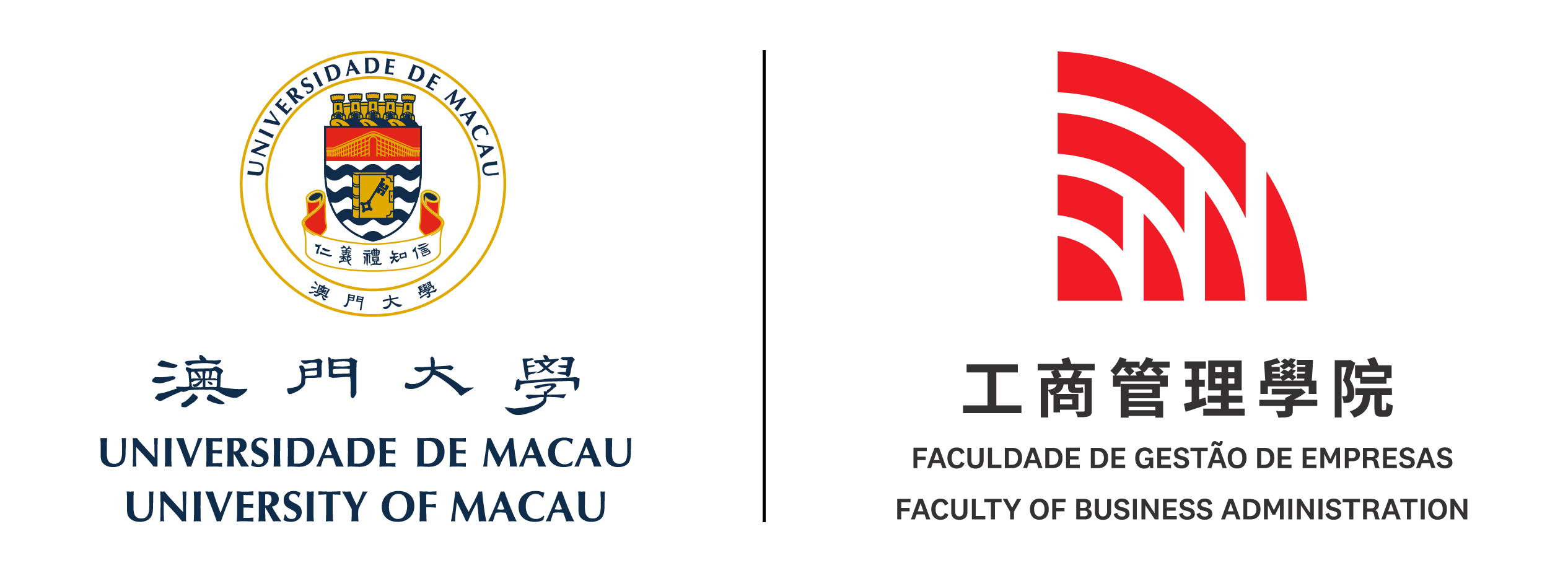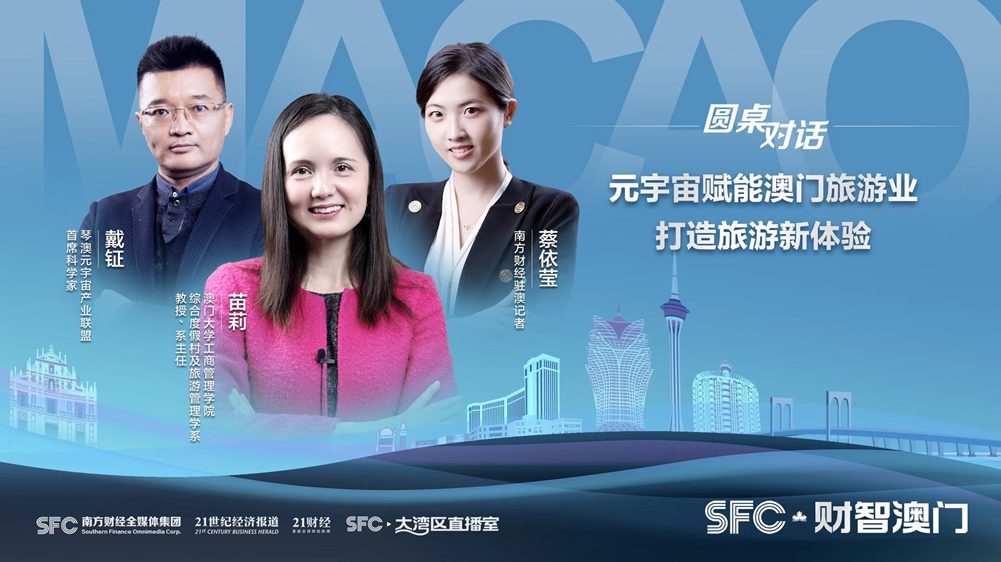According to data from the Macau Government Tourism Office (MGTO), once the restriction policy was eased on January 8, the number of visitors increased, with 55,000 coming on January 14, the largest number in a single day since the pandemic.
The Economic and Technological Development Bureau (DSEDT) has held a variety of community events to integrate AR technology elements into the historic community, as well as put up a number of AR interactive projects on site. The events aimed at developing an online and offline interactive mode, boosting the enjoyable experience of residents and visitors, and extending their stay in the neighborhood by introducing AR as a new aspect of technology tourism.
“Metaverse technology can enhance tourists’ travel experiences in multiple dimensions.” Prof. Miao Li, Head of the Department of Integrated Resort and Tourism Management of the Faculty of Business Administration emphasized. She also stated in the interview that the “sense of presence” and “immersive experience” expressed by the metaverse are exactly in line with the new model pursued by the tourism industry in the digital era, with the blessing of new technologies such as 5G, Artificial Intelligence, Autostereoscopic 3D Display, AR, VR, and so on.
In 2021, the prospect of merging the Metaverse with diverse sectors is still being investigated. With the influence of the pandemic, virtual concerts, virtual education, virtual finance, virtual academic activities, virtual creativity, etc.,have accelerated the development and research of the Metaverse. According to Zheng Dai, the chief scientist of the Hengqin-Macau Metaverse Industry Alliance, he expects that through the alliance, firms in Macau would take the lead in this field. “I aim to identify the greatest partners in many industries and pool their resources to help Macau’s future upgrade or transition,” Dai said.

Southern Finance: Under the impact of the pandemic, can the new track of the Metaverse empower Macau’s tourism industry?
Miao: Macau’s visitors have progressively increased recently, but the challenge that we are facing is, can we sustainably continue our current rate of growth? At the same time, I don’t believe Metaverse tourism is a new path. Macau’s strength is its status as a World Centre of Tourism and Leisure, and the key to the challenge is how we can continue to lead in this quickly expanding track.
Dai: The Metaverse is a description of the digital world. Because of the rapid advancement of technology, we now have a larger space for growth in the virtual world. In reality, it aligns with the two ultimate aims of future humanity: creating a digital environment and extending effective and healthy life. Macau has made a solid start in the creation of the Metaverse, and we should think about how we can leverage the Metaverse and other technological and non-technical features to transform Macau into a truly global ultimate experience tourist destination.
Southern Finance: What opportunities can “Metaverse + Tourism” provide for the market? What are the aspects to combine the real and the virtual, and what is the focus of future development?
Dai: It turns out that the experience in tourism is more of a physical experience, that is, the experience of scenes and lifestyles formed by the physical environment. The Metaverse can provide a new experience of “virtual and real integration,” and we can obtain value-added components from the experience process.
From the perspective of tourism experience integration, I believe that more Autostereoscopic 3D Display should be used to develop a tourist destination like Macau. The current combination of Autostereoscopic 3D Display technology can create a more distinctive immersive experience for Macau’s attractions. At the same time, projects to refurbish Macau’s historic streets and Metaverse labs are already in the works.
Miao: I believe that Metaverse technology can enhance tourists’ travel experiences in multiple dimensions. Examples include Macau’s historic neighborhood and the World Heritage Site. We can experience the rich historical and cultural connotations of world cultural heritage and historic urban places more immersive if we can travel through time using technology. For example, the Metaverse’s blend of virtual and actual technologies can take the present experience of numerous festivals and events in Macau to a new level. Visitors can begin their adventure through the virtual world before arriving in Macau and continue to enhance their experience after leaving the city.
Southern Finance: What technical skills must be developed in order to advance the Metaverse? And what kind of school-business collaboration and work deployment may we expect in the future?
Dai: We need to drive the “Metaverse +” upgrade of the entire tourism industry by building Macau as a global hub for the next generation of international tourism experiences. There will then be a demand for talents.
Miao: The goal of Metaverse tourism is to create an ecosystem that includes businesses, governments, and academia. For example, the University of Macau (UM) already has a Metaverse research team that is actively communicating and cooperating with all parties. The Centre for Innovation and Entrepreneurship in UM can also serve as a collaborative testing ground, connecting everyone to discuss and realize the development of “Metaverse + Tourism” in Macau.
Dai: The Hengqin-Macau Metaverse Industry Alliance we have built is to take Macau enterprises as the leader, then expand to cover the Greater Bay Area and finally the world. We intend to bring together the best partner capabilities in a variety of specialized industries to help Macau with its next upgrade and evolution.

Sources for news and photos:Southern Finance Omnimedia
Click Here for Prof. Miao’s full interview.


